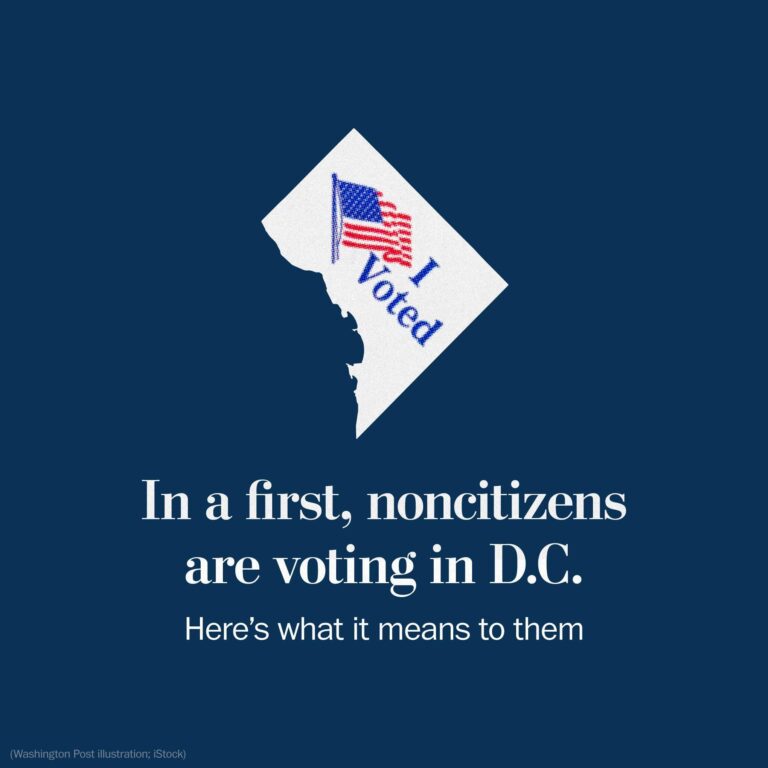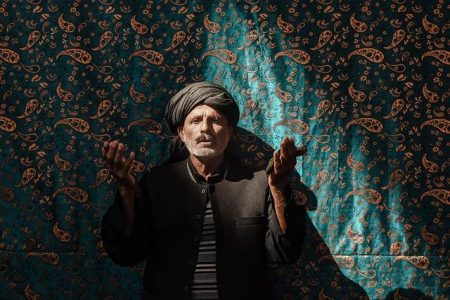Voting in Washington, D.C., is a straightforward process with easily accessible polling places and inclusive voter registration policies. Yet, despite these conveniences, residents of the nation’s capital continue to face a fundamental democratic shortfall: their votes do not carry the same weight as those cast in states. A recent investigation by the Center for Public Integrity highlights the ongoing struggle for full representation in Congress, revealing how the ease of voting in D.C. contrasts sharply with the political disenfranchisement of its citizens. This paradox underscores a persistent challenge in American democracy—where participation is welcomed, but influence remains limited.
Voting Rights in Washington D.C. and the Quest for Full Representation
Although residents of Washington, D.C., participate actively in local elections and federal presidential voting, their influence remains limited at the congressional level. The District’s unique constitutional status denies its residents voting representation in Congress, relegating them to a non-voting delegate in the House of Representatives and no Senate representation. This discrepancy highlights a paradox where citizens engage fully in the democratic process but lack the full power that comes with equal representation. The fight for statehood and equal voting rights has intensified, with activists emphasizing that despite paying federal taxes and serving in the military, D.C. residents do not have a true voice in shaping federal legislation.
Key challenges facing Washingtonians include:
- Absence of voting members in the Senate
- Limited voting power of the House delegate
- Dependence on Congressional approval for local laws and budgets
| Aspect | Washington, D.C. | 50 States Average |
|---|---|---|
| Voting Senators | 0 | 2 per state |
| Voting House Representatives | 0 | Multiple |
| Taxation without Representation | Yes | No |
Despite legal challenges and political debate, the constitutional ambiguity continues to stall full enfranchisement for D.C. residents. Proposed legislation for D.C. statehood promises to resolve these issues by granting Washingtonians the rights enjoyed by citizens in all other states, but the path remains uncertain. Until then, the residents‚Äô ability to “vote easily” does not translate to nationwide legislative power, leaving a crucial gap in American democracy.
Legal Barriers Undermining the Impact of D.C. Votes
Despite Washington, D.C. residents participating enthusiastically in local and federal elections, their political influence remains severely restricted by a web of legal constraints. The district, unlike states, lacks full congressional representation, with its delegate in the House unable to vote on final legislation and no representation in the Senate. This absence of voting power means that even when millions of D.C. residents cast ballots, their voices are effectively muted in shaping federal law and policy.
The legal framework underpinning this disenfranchisement includes:
- The District Clause of the Constitution, which grants Congress exclusive authority over D.C., overriding local governance.
- The 23rd Amendment, which allows D.C. presidential electors but stops short of granting congressional voting rights.
- The Residential Federal Alienation rule, restricting D.C.’s autonomy over its budget and laws, as Congress can override local decisions.
| Legal Barrier | Impact on Voters |
|---|---|
| Non-voting Delegate | Cannot cast final votes in the House |
| No Senate Representation | Zero influence in Senate decisions |
| Congressional Oversight | Local laws subject to repeal by Congress |
The Historical Struggle for Statehood and Political Equality
For over two centuries, residents of Washington, D.C. have faced a paradoxical reality: while they participate fully in local elections and engage actively in the political process, their influence at the federal level remains limited. Despite casting ballots in presidential elections and electing a non-voting delegate to the House of Representatives, D.C. citizens have long been denied voting representation in Congress. This disenfranchisement stems from the city’s unique constitutional status as a federal district, established by the Founding Fathers to serve as the nation’s capital, but inadvertently leaving its residents without full political equality.
Efforts to secure statehood and political parity have been persistent and multifaceted, marked by significant milestones and continued resistance. Key demands include:
- Full congressional representation: D.C. seeks voting members in both the House and Senate.
- Autonomy over local affairs: Greater self-governance without congressional interference.
- Equal access to federal programs: Including equitable funding and benefits.
The journey toward political equality has been punctuated by landmark legislative proposals, intense public advocacy, and legal challenges—all underscored by a fundamental question of democratic fairness.
| Year | Event | Outcome |
|---|---|---|
| 1961 | 23rd Amendment Ratified | D.C. gains right to vote in presidential elections |
| 1970 | Home Rule Act Enacted | Limited self-government granted |
| 2021 | Statehood Bill Passed House | Blocked in Senate |
Policy Recommendations to Amplify D.C. Residents’ Voices in Congress
To address the persistent disenfranchisement faced by D.C. residents, lawmakers should prioritize granting the district full voting representation in Congress. This could be achieved through a federal constitutional amendment or legislation that recognizes D.C. as a state. Additionally, expanding the authority and visibility of the district’s non-voting delegate could help amplify the voices of its constituents, allowing for more active participation in committees and floor debates. Such measures would not only democratize legislative processes but also reaffirm the foundational principle of equal representation for all U.S. citizens.
Key reforms to consider include:
- Elevating the delegate’s role to voting member status in the House of Representatives
- Introducing federal safeguards to protect D.C.’s local autonomy against congressional overrides
- Implementing public awareness campaigns to highlight the issue of D.C. disenfranchisement nationwide
- Encouraging bipartisan support for statehood bills through coalition-building and advocacy
| Policy Reform | Expected Impact |
|---|---|
| Full Statehood for D.C. | Voting seats in Congress, full legislative power |
| Expanded Delegate Powers | Greater influence on legislation and committee work |
| Federal Autonomy Protections | Preservation of local laws and budget without congressional interference |
| National Awareness Initiatives | Broader public support and pressure on lawmakers |
Insights and Conclusions
In a city where casting a ballot is straightforward and voter participation is high, the ongoing lack of full congressional representation continues to dilute the political power of Washington, D.C.’s residents. Despite efforts to make voting accessible and encourage civic engagement, the fundamental issue remains unchanged: D.C. voters still face systemic barriers to equal representation. As the debate over statehood and voting rights persists, the voices of the District’s electorate underscore a pressing need for reform that ensures every vote truly counts on the national stage.







